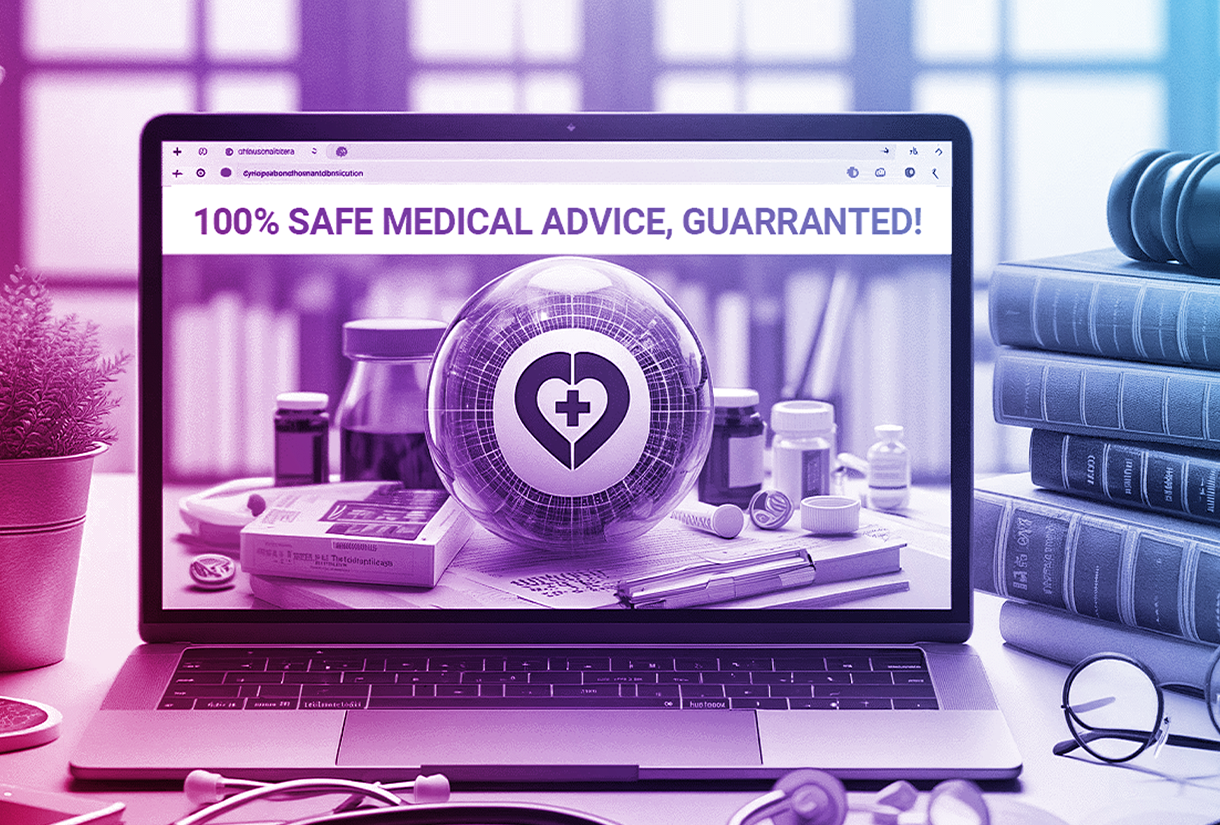
Nearly 90% of all adults in the USA search for health information online, yet a study found 40% of posts on TikTok contained misinformation about health.
In the digital age, Dr. Google has become the go-to for many when they start sneezing, feel a weird lump, or just want to know if eating 10 bananas a day is really the secret to eternal youth. But where do most people turn for their health information? And more importantly, can we trust the avalanche of advice that comes tumbling out of our screens?

The Digital Diagnosis
Recent studies suggest that a staggering number of people—let’s ballpark it at a hefty majority—use the internet and social media as their primary sources of health information. Yes, gone are the days of leafing through encyclopedias or waiting weeks for a doctor’s appointment just to ask if a mosquito bite could indeed be something more sinister.
According to Pew Research, about 59% of Americans have searched online for health information in the past year, with nearly eight-in-ten (77%) online health seekers starting their search at a search engine such as Google, Bing, or Yahoo. Websites ranging from reputable medical institutions to health-focused blogs offer an array of content on symptoms, treatments, and preventative measures for various conditions. This wealth of information empowers individuals to make informed decisions about their health, fostering a sense of autonomy in managing personal well-being.
Social media platforms further amplify this trend by enabling the rapid dissemination of health information. Nearly 90% of all adults in the USA search for health information on platforms like Facebook, Twitter, YouTube, and other social media sites. Over 75% of Americans use social media to research their health symptoms, and a notable 90% of individuals aged 18 to 24 stated they trust medical information shared on their social feeds.
But with great power comes great responsibility, and the internet, while vast and full of resources, is also a breeding ground for misinformation. That’s right, not everything you read next to an ad for weight loss tea is gospel truth.
The Misinformation Malady
Is medical misinformation really that dangerous? Simply put, yes. Misinformation can lead to poor health decisions and unnecessary panic, and in some cases, it can be downright harmful. Imagine someone opting for a “miracle cure” they found in the depths of a forum over seeking professional medical advice. The consequences could range from benign to catastrophic.
A study presented at Digestive Disease Week (DDW) 2023 found 4 in 10 posts about liver disease on TikTok contain misinformation, with most pushing inaccurate claims about fad diets, “detox” drinks and herbal remedies, suggesting that liver disease patients who seek medical information on TikTok may need help separating good information from the bad.
Sifting Through the Sea of Info
So, should we just throw our digital devices out the window and revert to smoke signals and carrier pigeons? Not necessarily. The key is learning how to find reliable health information amidst the noise.
1) Check the Source: Websites run by medical institutions, government health departments, or reputable organizations are your best bet. If the domain ends in .edu, .gov, or .org, you’re more likely to be on the right track.
2) Professional Peer Review: Look for information that mentions it has been peer-reviewed. This means that other experts have checked the work for accuracy.
3) Beware of Bias: Be cautious of sites selling something or with obvious financial incentives. Their health advice might not be the most unbiased.
4) Consult a Professional: When in doubt, talk to a healthcare professional. They can help you navigate the information and decide what’s relevant to you.
The Verdict
While the internet and social media are treasure troves of information, they’re also minefields of misinformation. But fear not: with a little savvy and skepticism, you can learn to discern the helpful from the harmful. Remember, in the vast world of health information, a little critical thinking goes a long way. So, arm yourself with knowledge, and don’t let Dr. Google and social media do all the talking.